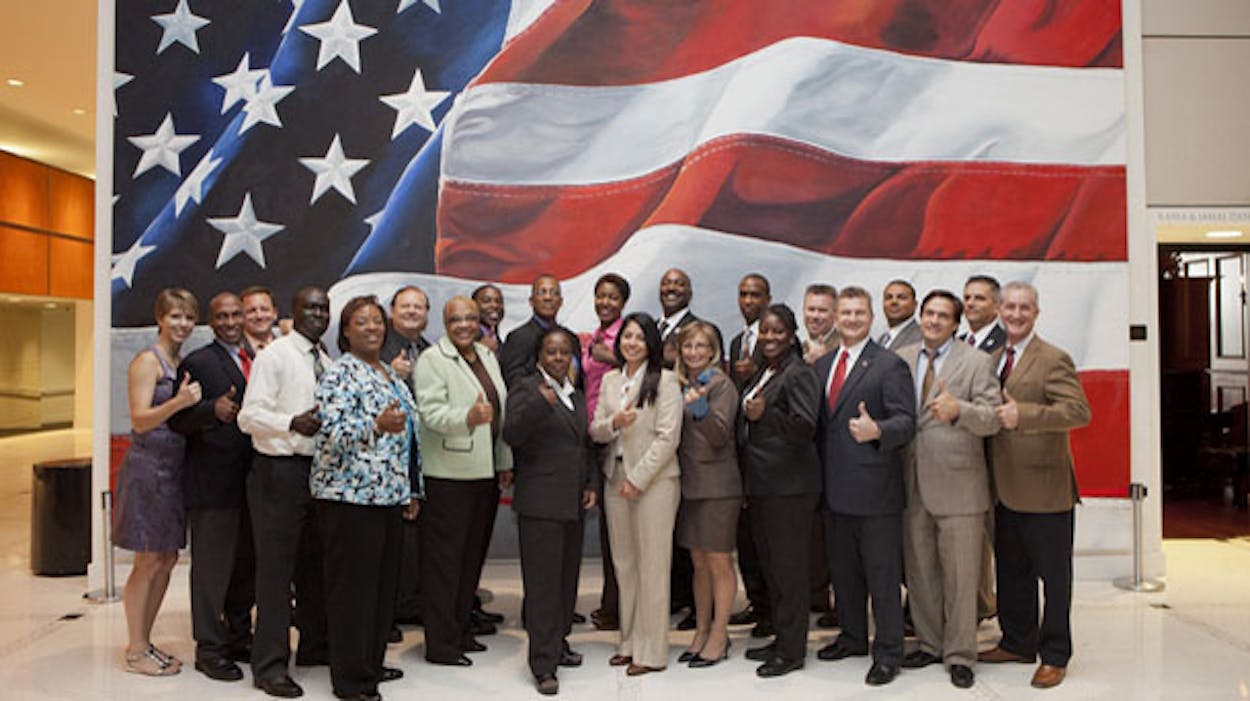Veterans often start business ventures a few steps behind civilians. After their military service, many move to new communities to start over. Some are overcoming injuries or other health hurdles. Most have to adjust to a daily life that is less prescribed and regimented than in the military—one in which they are writing all the rules.
Thankfully, for former military personnel looking to start their own business, the transition to civilian life is eased by a number of resources provided exclusively for veterans. In Texas, a whole menu of resources is available at The Texas Veterans Commission. The Veteran Entrepreneur Program fosters and promotes veteran enterprises throughout Texas.
Liz Perez-Halperin was an Aviation Logistics Specialist for more than eight years in the United States Navy before starting a business of her own. To help launch it, she completed the Entrepreneurship Bootcamp for Veterans with Disabilities at Texas A&M University’s Mays Business School. The nine-day residency course is one of eight programs nationwide, and the only one in Texas.
Perez-Halperin graduated in August 2011, and she is now the president and founder of GC Green (GCG), a post-9/11 service-disabled veteran-owned green building general contracting and consulting firm in San Diego, California. Perez-Halperin is also a member of the North Fork Mono Indian tribe in California. She serves on the Cleantech EDGE and San Diego State Sustainability advisory boards. In 2013, she plans to start the first Military Cleantech Hub in San Diego for veteran entrepreneurs looking to get started in the clean energy industry.
Perez-Halperin says veterans who are looking to start their own businesses need to know which resources are available to them, and the fact that it takes hard work to be successful. We asked Perez-Halperin to share what she’s learned over the past several years as she has transitioned from a job in the military to a civilian business owner.
Don’t consider a certification a free ticket to a successful business. “I had them all: women-owned, veteran-owned and minority-owned. But I realized that wasn’t all I needed. You still have to build your references and reputation. To get the work, you’ve got to get out and meet people.”
Be open to unconventional marketing ideas. “I spent the first two years marketing my business and implementing cost-cutting measures by bartering for office space and services such as a website for the company. You learn to use whatever you can.”
Strive for the balance you desire in your life. “Take care of your personal relationships and carve out time for your favorite aspects of your work. What’s your mojo—what gets you up in the morning? You have to protect that.”
Know your veteran community. “They will help you verify references, stay plugged into new developments in your community, let you bounce ideas off of them, and provide fun opportunities in your personal lives. It keeps your life more well-rounded.”
Stay educated so you can be the expert in your industry. “I went to school to brush up on my contractor training, and just took the exam. California has so many EPA regulations, I have to stay on top of all the changes and rules.”
To find out more about what’s available to veterans at the Texas Veterans Commission, contact Duncan McGhee at duncan.mcghee@tvc.state.tx.us or call him at (512) 936-6677.
The Texas Women Veterans Program has information specifically for women who have served.
This story was researched and written by Kelli Levey, Communications Specialist, Mays Business School at Texas A&M University. No member of the Texas Monthly editorial staff was involved in its production. For more information about sponsor content, see our FAQ.
For more information on Entrepreneurship Bootcamp for Veterans and to read other entrepreneurship stories, visit Texas A&M or follow @TAMU on Twitter.






